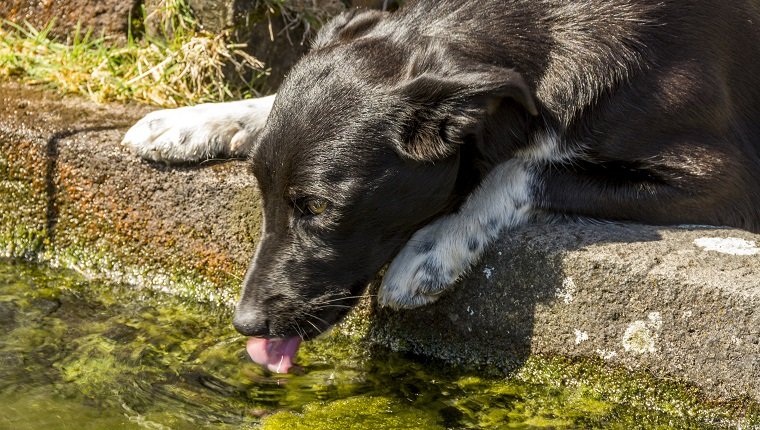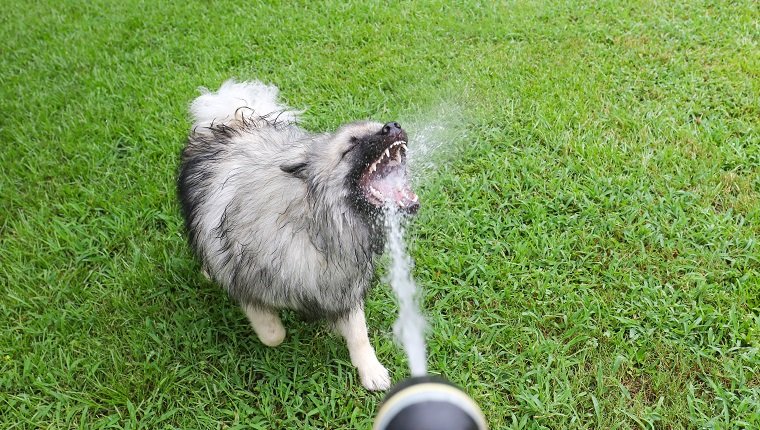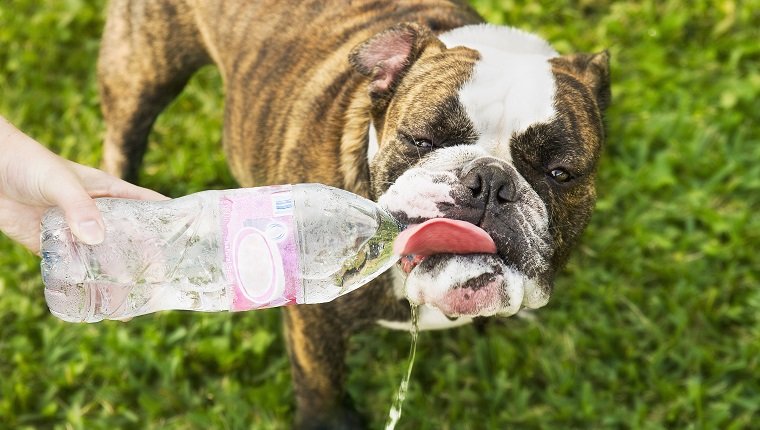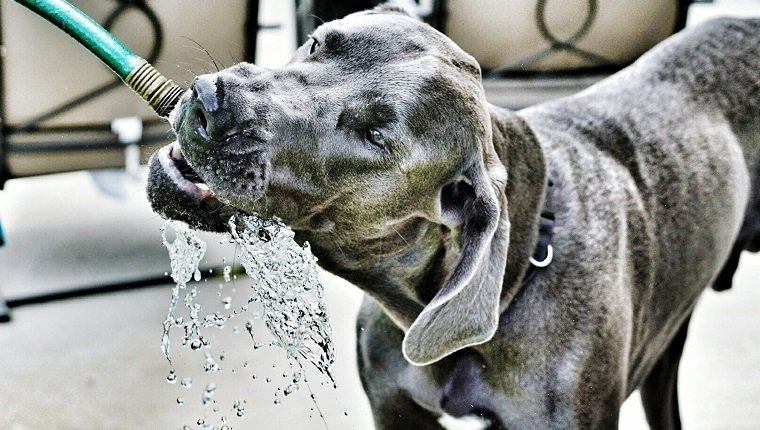Polydipsia in dogs is an increased thirst for water, and it’s almost always a symptom of an underlying disease or medical condition. If dogs are drinking more water than usual, emptying their water bowls quickly, or searching for water in places they don’t normally drink from, such as the toilet, they are likely suffering from polydipsia.
Generally, dogs should drink an amount of water equal to about two and a half times the amount food that they eat. If they start to drink more than that, pet parents should get to a vet and not just assume their dogs are hot.
If your dog is drinking excessive amounts of water, then it’s important that you get them checked out by a veterinarian who can find the underlying cause and prescribe treatment. Here’s what you should know about the symptoms, causes, and treatments for polydipsia in dogs.
Symptoms Of Polydipsia In Dogs

Polydipsia in dogs is, itself, a symptom of other medical conditions. It may appear with other symptoms, like excessive urination, or it may be the only noticeable symptom a dog experiences.
It may be difficult to tell if a dog is drinking excessive amounts of water because of illness, or if they are drinking more than usual for a normal reason, like after eating dry or salty food or after getting mildly overheated.
A general guideline is that dogs should drink two and a half pounds of water for every one pound of food they eat. This amount can vary quite a bit, so it is important to take notice of how much water your dog drinks normally when there are no medical issues present and establish a baseline.
Causes Of Polydipsia In Dogs

There are many possible causes of polydipsia in dogs. Several medical conditions can cause excessive thirst, including kidney disease, liver failure, diabetes, hypercalcemia, tumors, thyroid problems, hormone disorders, or electrolyte deficiencies.
Dehydration, of course, is another possible cause of polydipsia, though dehydration is also sometimes a symptom of a medical condition.
Low protein diets can cause polydipsia, as can exposure to medication, such as diuretics or steroids. There are also congenital conditions, present at birth, that may cause polydipsia.
Psychogenic polydipsia is an uncommon behavioral condition that may cause dogs to drink more water. Some dogs, especially puppies, just drink because they are bored. Some breeds of dogs that love water will occasionally drink excessively for no particular reason.
This can make it difficult for vets to determine if there’s an underlying medical condition that they need to address. You should discuss your dog’s normal water drinking habits with your vet to help them diagnose the problem.
Treatments For Polydipsia In Dogs

Treatment for polydipsia in dogs depends on the underlying cause of the condition, but dogs should never have their access to water restricted to reduce water consumption. This can cause dogs to become dehydrated or suffer from fluid imbalance, resulting in worse symptoms.
In fact, free access to plenty of water is often part of the treatment for underlying conditions that cause thirst. Vets may also prescribe electrolytes for dogs suffering from dehydration.
Further treatment can range from outpatient care to prescription medications to emergency hospitalization for kidney or liver failure. This depends on the vet’s diagnosis of the medical condition that’s causing thirst.
If your dog is suffering from polydipsia, you should consult your vet as soon as possible, as the causes range from mild to life-threatening.
Has your dog ever suffered from excessive thirst? What was the cause? Let us know in the comments below!








